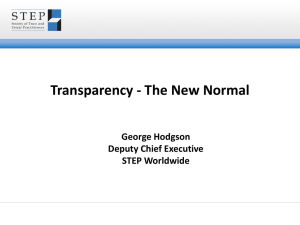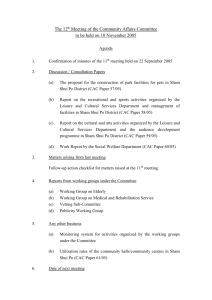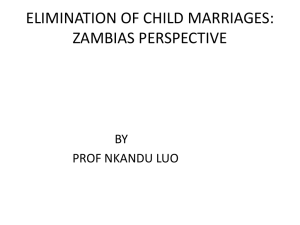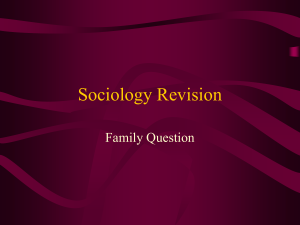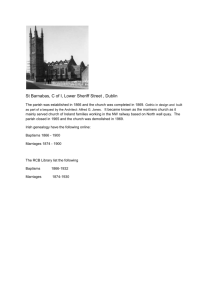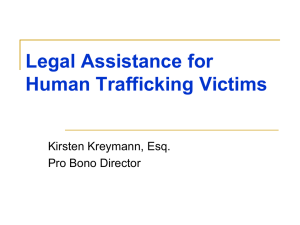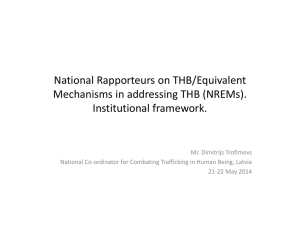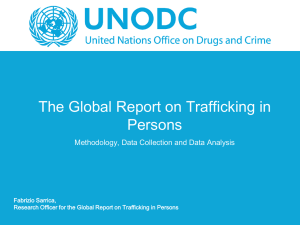HESTIA Press Release_EN
advertisement
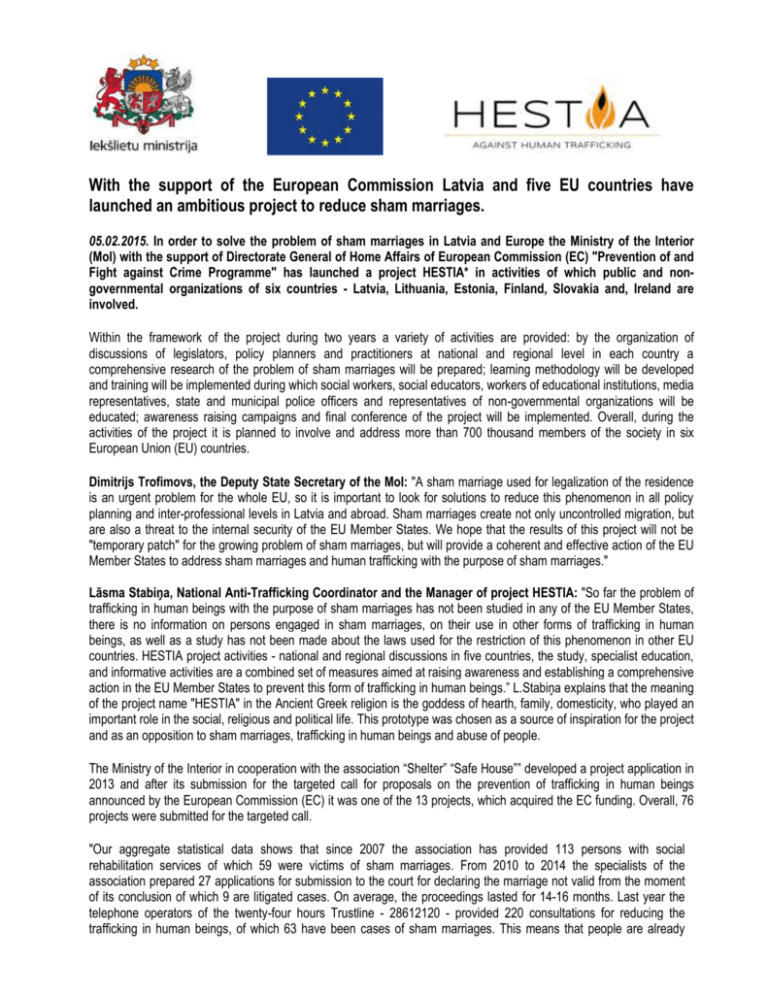
With the support of the European Commission Latvia and five EU countries have launched an ambitious project to reduce sham marriages. 05.02.2015. In order to solve the problem of sham marriages in Latvia and Europe the Ministry of the Interior (MoI) with the support of Directorate General of Home Affairs of European Commission (EC) "Prevention of and Fight against Crime Programme" has launched a project HESTIA* in activities of which public and nongovernmental organizations of six countries - Latvia, Lithuania, Estonia, Finland, Slovakia and, Ireland are involved. Within the framework of the project during two years a variety of activities are provided: by the organization of discussions of legislators, policy planners and practitioners at national and regional level in each country a comprehensive research of the problem of sham marriages will be prepared; learning methodology will be developed and training will be implemented during which social workers, social educators, workers of educational institutions, media representatives, state and municipal police officers and representatives of non-governmental organizations will be educated; awareness raising campaigns and final conference of the project will be implemented. Overall, during the activities of the project it is planned to involve and address more than 700 thousand members of the society in six European Union (EU) countries. Dimitrijs Trofimovs, the Deputy State Secretary of the MoI: "A sham marriage used for legalization of the residence is an urgent problem for the whole EU, so it is important to look for solutions to reduce this phenomenon in all policy planning and inter-professional levels in Latvia and abroad. Sham marriages create not only uncontrolled migration, but are also a threat to the internal security of the EU Member States. We hope that the results of this project will not be "temporary patch" for the growing problem of sham marriages, but will provide a coherent and effective action of the EU Member States to address sham marriages and human trafficking with the purpose of sham marriages." Lāsma Stabiņa, National Anti-Trafficking Coordinator and the Manager of project HESTIA: "So far the problem of trafficking in human beings with the purpose of sham marriages has not been studied in any of the EU Member States, there is no information on persons engaged in sham marriages, on their use in other forms of trafficking in human beings, as well as a study has not been made about the laws used for the restriction of this phenomenon in other EU countries. HESTIA project activities - national and regional discussions in five countries, the study, specialist education, and informative activities are a combined set of measures aimed at raising awareness and establishing a comprehensive action in the EU Member States to prevent this form of trafficking in human beings.” L.Stabiņa explains that the meaning of the project name "HESTIA" in the Ancient Greek religion is the goddess of hearth, family, domesticity, who played an important role in the social, religious and political life. This prototype was chosen as a source of inspiration for the project and as an opposition to sham marriages, trafficking in human beings and abuse of people. The Ministry of the Interior in cooperation with the association “Shelter” “Safe House”” developed a project application in 2013 and after its submission for the targeted call for proposals on the prevention of trafficking in human beings announced by the European Commission (EC) it was one of the 13 projects, which acquired the EC funding. Overall, 76 projects were submitted for the targeted call. "Our aggregate statistical data shows that since 2007 the association has provided 113 persons with social rehabilitation services of which 59 were victims of sham marriages. From 2010 to 2014 the specialists of the association prepared 27 applications for submission to the court for declaring the marriage not valid from the moment of its conclusion of which 9 are litigated cases. On average, the proceedings lasted for 14-16 months. Last year the telephone operators of the twenty-four hours Trustline - 28612120 - provided 220 consultations for reducing the trafficking in human beings, of which 63 have been cases of sham marriages. This means that people are already interested in prevention of trafficking in human beings and in measures to protect themselves from it. There is still a lot of work that we together with partners invest in informing the society, and also in education of specialists. Our awareness campaigns in recent years have acquired recognition at the international level, and Latvia can be proud of gaining good experience in providing prevention activities, being an example, sharing knowledge with other countries. For prevention efforts to be effective, a continuous work of all involved parties is necessary, so it is a gratification that issues of sham marriages in the framework of this project will be addressed at the international level between both countries of origin of victims and countries of destination,” says Sandra Zalcmane, the Head of the NGO “Shelter “Safe House””. HESTIA project partners: NGO "Shelter" Safe House"" (Latvia), NGO "Mittetulundusühing"" "Living for Tomorrow" (Estonia); NGO "Caritas Lithuania" (Lithuania); Immigrant Council of Ireland (Ireland); Ministry of the Interior of Slovak Republic (Slovakia); European Institute for Crime Prevention and Control of the United Nations (HEUNI) (Finland). Project associated partners: The State Police (Latvia), Ministry of Foreign Affairs (Latvia), Department of Justice and Equality (Ireland). NGO "Caritas Lithuania" (Lithuania) informs that in 2014 16 pre-trial investigations were initiated, provided assistance to 20 victims of trafficking in human beings.18 persons have been recognized as suspects. The main forms of trafficking in human beings - forced prostitution and involvement in criminal activities. Presented data by Estonian NGO "Mittetulundusühing" “Living for Tomorrow"" show that during last year 2 people in Estonia were formally identified as victims of trafficking in human beings and one case has been adjudicated in connection with sham marriage. European Institute for Crime Prevention and Control of the United Nations (HEUNI) reported that Finland has very little information on trafficking in human beings with the purpose of forced marriages or sham marriages. Three of the four identified victims were victims of labour exploitation. Provided data by the Ministry of the Interior of Slovak Republic show that in 2014 30 victims of trafficking in human beings have been identified, 13 of them are victims of sexual exploitation, 9 of sham marriages, 4 of forced labour, 2 of forced begging, 1 of involvement in criminal activities, 1 of other form of trafficking in human beings . In the case of sham marriages in Slovakia there is a tendency of this form of trafficking in human beings to increase: 2 victims were registered in 2011, 2 victims in 2012, 7 victims in 2013, 9 victims in 2014. In many cases of sham marriages women were forced into prostitution. An implementation of HESTIA project was launched on 1 January 2015 and would last for 24 months. From 5 to 6 February the first meeting of the representatives of the project’s Member States is organized in Riga in order to discuss HESTIA future activities and plans. The total project budget is 640,000 Euros. * Project "Preventing human trafficking and sham marriages: A multidisciplinary solution" (HESTIA) is being implemented by Directorate General of Home finance of European Commission (EC) "Prevention of and Fight against Crime Programme". Grant Agreement Nr. HOME/2013/ISEC/AG/THB/4000005845. Information prepared by: Rasa Salina, Public Relations Specialist of the project HESTIA Tel.: 29145314, e-mail: rasa.salina@gmail.com
